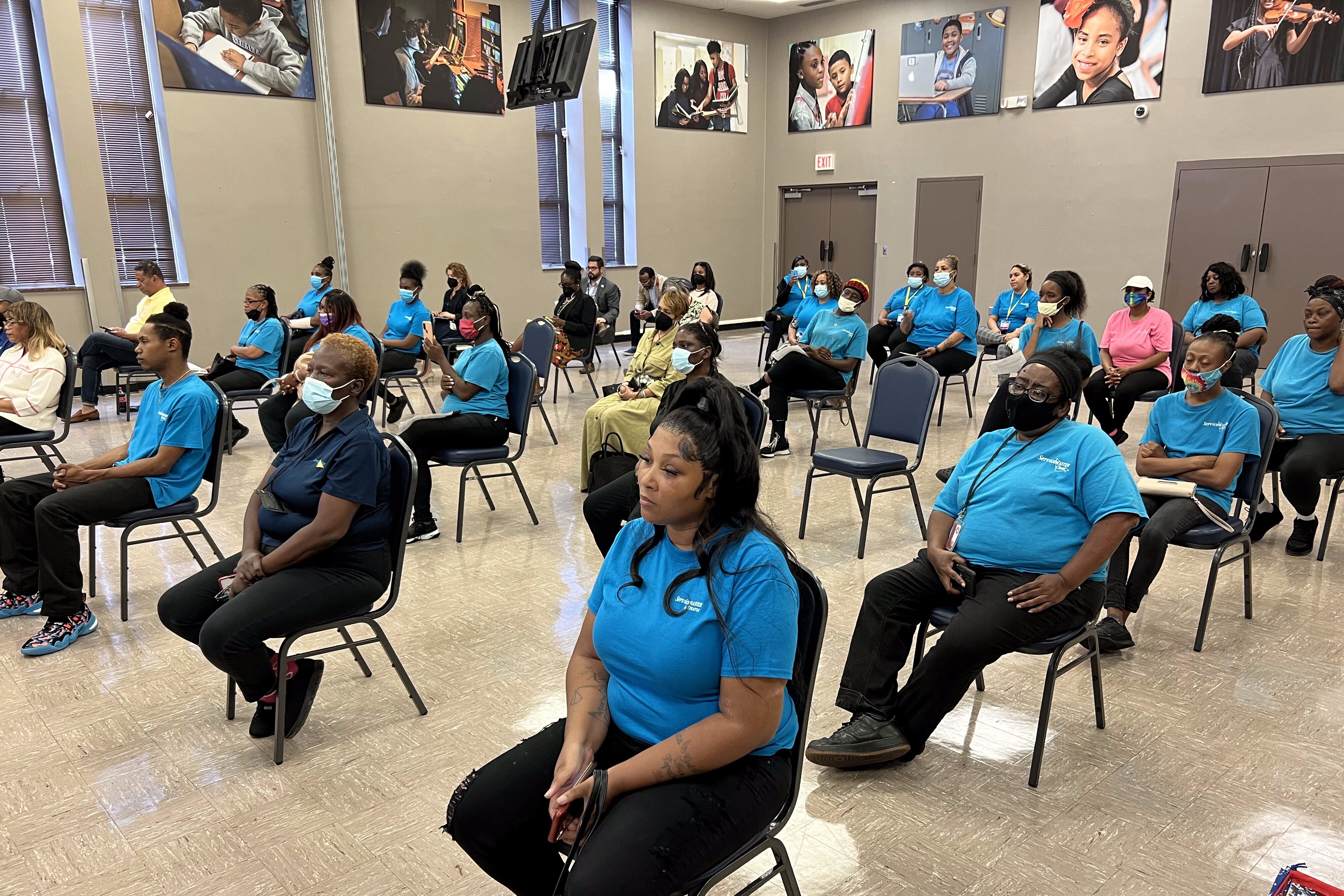Memphis-Shelby County Schools wants to clean up the way it cleans up its schools.
Last year, the board approved a four-year, $34 million contract with ServiceMaster Clean to provide custodial services across the district. The cost was significantly higher than the previous year, when the work was split between two providers, but MSCS sought a wage increase to $15 an hour, which the district argued would help it hire and retain workers.
Even so, the contract hasn’t resolved persistent cleanliness concerns raised by students and teachers. So among other options, the district may consider terminating the contract early.
“We want our kids going to clean schools,” board member Frank Johnson said at a meeting Tuesday, requesting that district officials present options for an updated custodial plan. Earlier this school year, Johnson said students at a school in his district walked out of class in protest of dirty classrooms.
Interim Superintendent Toni Williams — who was the chief financial officer when the board approved the ServiceMaster Clean contract last June — said the district has withheld payment for some $6 million in pandemic-related cleaning services that ServiceMaster Clean has not executed.
ServiceMaster Clean didn’t deep-clean the schools last summer, a task typically performed every summer, district officials said Tuesday.
“I just want to point out that the accountability is there,” Williams said Tuesday. “If we are going to do this, I’m going to be accountable for the schools.”
Williams said the district would present options to board members later this month, including a cost analysis for bringing custodial workers in-house.
ServiceMaster has been a custodial contractor for the district in several of the years since cleaning services were outsourced following the merger between Shelby County Schools and Memphis City Schools a decade ago. Before last year’s contract, it shared the duties with SKB Facilities & Maintenance, and, before that, with Aramark.
This year, board members are requesting a more active role in deciding what happens with custodial services. In previous years, the board split over votes to approve custodial contracts presented by the district, with the lasting cleanliness concerns brought up each time.
Last year, for instance, the board voted down the ServiceMaster Clean contract before reconvening less than a week later to approve it.
For now, the board isn’t facing any impending deadlines: The current contract isn’t nearing expiration, and the district is not actively seeking new vendors for the work.
Laura Testino covers Memphis-Shelby County Schools for Chalkbeat Tennessee. Reach Laura at LTestino@chalkbeat.org.






